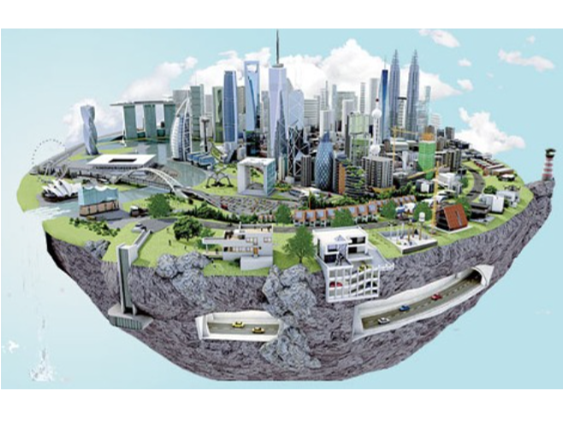The main idea behind the concept of smart cities is to make life easier for people. The aim is to leverage technology and data-driven solutions to improve the quality of life for residents while also promoting sustainability and efficiency. Smart cities aim to integrate various aspects of urban life, such as transportation, energy, waste management, and public safety, into a connected and intelligent network. By making use of advanced technologies like IoT (Internet of Things), artificial intelligence, and data analytics, smart cities can enhance urban infrastructure, optimize resource allocation, and enhance the overall experience of human beings. The main goal is to create cities that are more livable, resilient, and responsive to the needs of their inhabitants, ultimately promoting and encouraging a sustainable and inclusive urban environment for future generations.
Cities that are not smart face plenty of problems that hinder their development and the well-being of their residents. One major issue is inefficient transportation systems, leading to traffic congestion, longer commute times, and increased carbon emissions. Lack of smart infrastructure and planning can also result in inadequate public services, such as unreliable water and electricity supply, poor waste management, and ineffective emergency response systems. Additionally, cities without smart technologies often struggle with limited access to information and services, hindering citizen engagement and participation. These cities may also face challenges in addressing environmental concerns, such as pollution and unsustainable resource consumption. Overall, the absence of smart city initiatives can worsen urban problems, obstructing the overall quality of life for residents and blocking the city's potential for growth and progress.
To tackle these problems, comprehensive and situation-specific strategies that involve cooperation between the public sector, local communities, and other stakeholders are needed.
The concept of Smart Cities has started to attract a lot of attention in recent years, and technology has left nothing to the imagination. That is one of the reasons why IEREK is organizing the 8th edition of its international conference “Future Smart Cities (FSC)”. In an attempt to solve some of the problems that are arising in cities at the moment, the “Future Smart Cities (FSC)” conference aims to discuss solutions and what can be done to stand in the way of these obstacles. Smart cities aim to address the problems faced by traditional cities by the influence of technology, data, and citizen engagement.
Event description based directly on original source.
8th International Conference on Future Smart Cities
Main Organiser
International University of Rabat (UIR), Morocco
Other Events
 View all Events
View all Events

